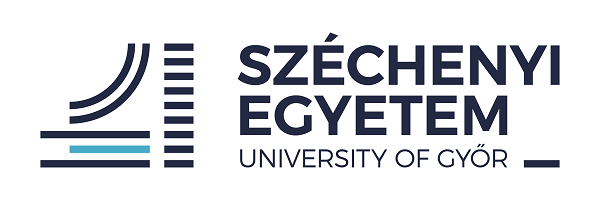18th International Congress on Public And Non-Profit Marketing
The International Association on Public and Non-profit Marketing (IAPNM/AIMPN), in collaboration with Széchenyi István University, and in cooperation with Society of Marketing Education and Research (EMOK) organises the 18 th International Congress on Public and Non-profit Marketing.
The last eighteen years have seen meaningful advances in the theory and practice of public and non-profit marketing. The researchers have introduced new conceptual models and approaches to influence behaviour that promotes environment, health and important public services. The challenge for the non-profit and public sector is to identify those values that efficiently contribute to the quality of life improvement on local, regional and international level. Anderson and Ostrom present an emerging area of transformative service research, which focuses on well-being outcomes related to health care services, social services and education services, too. Their framework focuses on two key types of well-being: eudaimonic and hedonic. Eudaimonic well-being emphasizes the realization of potential. Hedonic well-being is rooted in the ideas of pleasure and happiness. Regarding to the value offerings, researchers would focus on understanding how non-profit organizations can engage not only in new service innovation but also in social innovation. Overall, they contend that social innovation requires the deployment of an internal market orientation and information (including communication) technological competence in an organization. They argue that these two drivers positively influence the extent to which service organizations may engage in successful social innovations. The authors conceptualize four types of social innovations that non-profit organizations may pursue. First, these organizations may strive for innovations in their service offerings, including activities, projects, and programs, all of which have the potential to enhance client well-being. Second, they may socially innovate internally in the planning, implementation, and delivery process of their service offerings. Third, organizations may engage in social innovation through integrated marketing communication strategies. That is, they may socially innovate by introducing new forms of communication to reach their clients and to manage relationships with their stakeholders. Fourth, non-profit organizations may engage in social innovation internally, in terms of organizational structure or the introduction of new governance practices.
The event aims for joint participation of professors and researchers in a discussion forum revealing concerns regarding those aspects related to the responsible and/or sustainable character of activities carried out by entrepreneurs, businesses, public institutions, and/or non-profit organisations, considered from a marketing view. We also welcome studies, analyses or views from closely related disciplines. Papers that incorporate current thinking and developments by both academics and practitioners, combine a comprehensive theoretical foundation with practical insights are especially welcomed. The theme of this Congress can be interpreted broadly. Papers can either be empirical, conceptual or practical. We encourage researchers to submit their papers in English for the event, bringing their valuable contributions to the field of Public, Social, and Non-profit Marketing, and according to the format in the template that will be provided in the website.
